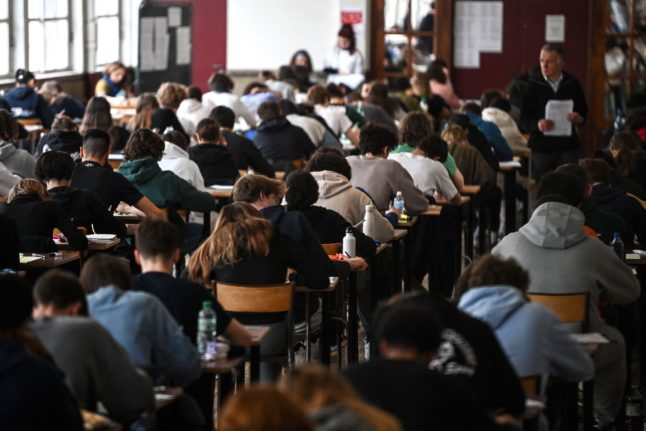ESCP Business School isn’t just one of the world’s leading business schools. It’s also a chance for students to have a truly international undergraduate experience.
“For students it is a unique experience to be able to interact and to work in groups with students of more than 50 different nationalities. They will be ready to work in a wide variety of environments,” says Marion Leparmentier, Director of Studies Bachelor in Management (BSc).
Find out more about the Bachelor in Management (BSc) degree at ESCP Business School
One of those students is 18-year-old Yara. She was born in Ivory Coast but is originally Lebanese and spent most of her life in Lebanon. Having lived for several years in Canada, she also holds Canadian citizenship. She has recently moved to Paris to start her Bachelor in Management (BSc) degree at ESCP Business School.
“I really wanted to study management because you can go onto work in any field you want. Everything in this programme will really help us in the future, and the idea of studying every year in a different country is incredible for both your education and you as a person.”
Yara is among the first of the Bachelor in Management (BSc) students to study at ESCP’s République campus in Paris — the largest, oldest, and grandest of the university’s campuses — which opened to first and second-year students on her programme this year.

Next year, she’s planning to study in Italy, and the year after that Berlin. All students on the programme are required to move to a new country each year and can choose between the university’s campuses in London, Paris, Turin, Berlin, and Madrid.
For Yara, moving country each year is just as educational as the programme itself.
“It shapes your ability to adapt to a life in a different country every year, and when you’re studying something like business or management it’s really important to have that sort of experience. It’s a one-of-a-kind experience I don’t think I’d find anywhere else.”
The multi-campus programme is taught in English, or in English and the local language. Students can also take lessons in the language of the country they’re living in, as well as the language of the country they’ll be studying in next.
Request more information about the Bachelor in Management (BSc) degree at ESCP Business School
Along with her regular classes, which include Management, International Relations, Introduction to European Business and Administration, Economics or Liberal Arts, Yara is also learning Italian in preparation for her second year of study in Turin.
“The great thing about this course is that you learn Italian in class and then you go for a coffee with a friend who speaks Italian so you speak it with them. It’s really applying what we learn inside the class outside the class.”
Being surrounded by other international students and studying in a different country each year is what appealed to Yara most about ESCP Europe. It’s important for students to have an interest in other cultures and enjoying languages — Yara, for instance, speaks four — and her coursemates speak two or more.

“It’s very diverse with amazing people from all over the world, places like Peru, Japan, Europe, and Dubai,” enthuses Yara. “Everyone is bilingual, because they have their language of origin and English. But some people speak up to eight languages.”
Second-year student Leon is also on the Paris République campus this year, after spending his first year studying in London. He also believes the diversity of the students at ESCP really adds to his experience on the programme.
“It’s tough to find students from so many backgrounds in other business schools. It gives you a different perspective, even if you disagree sometimes! You get used to working with people from lots of cultures, which is important if you want an international career in management.”
Like Yara, he believes the mix of nationalities on the programme only enriches his education.
“In my International Relations class we were discussing the refugee crisis in Europe and between us we had so many different views. I think that’s really unique.”
Both Leon and Yara agree that when they finish the programme they will be armed with the knowledge and life experience they need to pursue international management careers.
“This is a once in a lifetime opportunity,” says Yara. “It’s a really innovative programme and what we’re learning is what will be valued in the future. It’s going to be a beautiful mix at the end of the three years.”
This article was written by The Local Creative Studio and sponsored by ESCP Business School.



 Please whitelist us to continue reading.
Please whitelist us to continue reading.